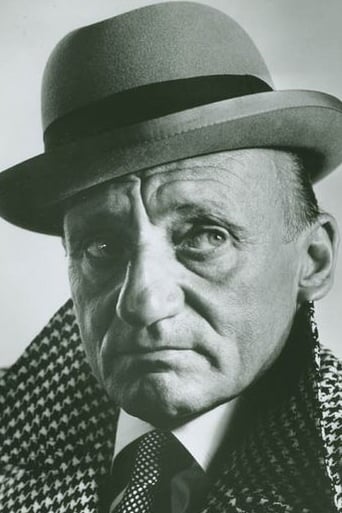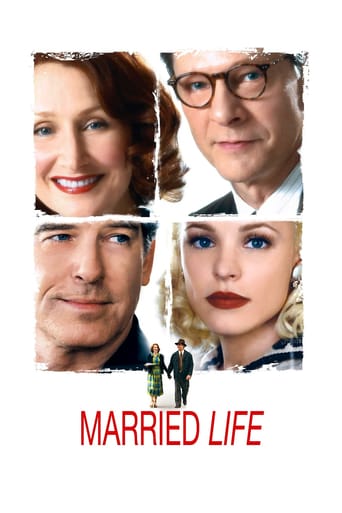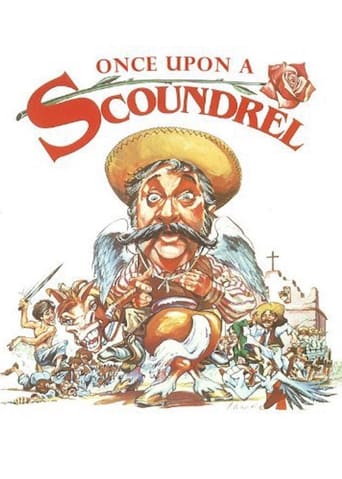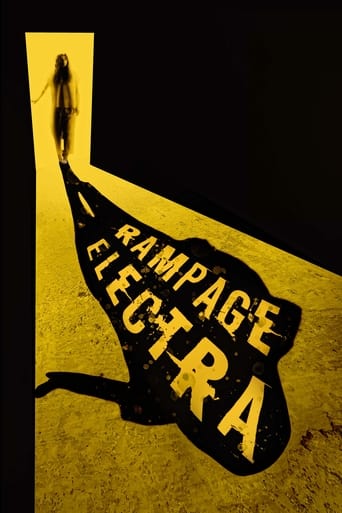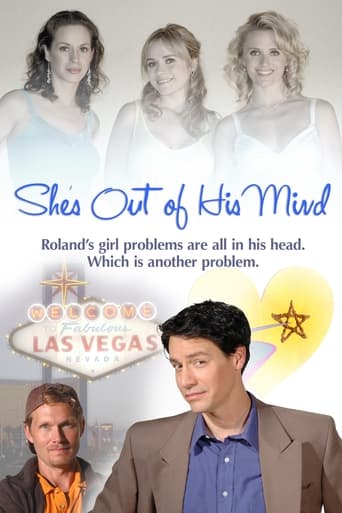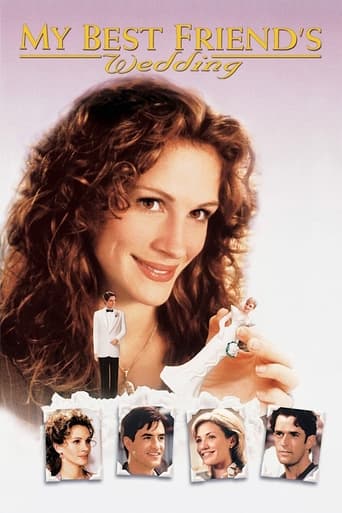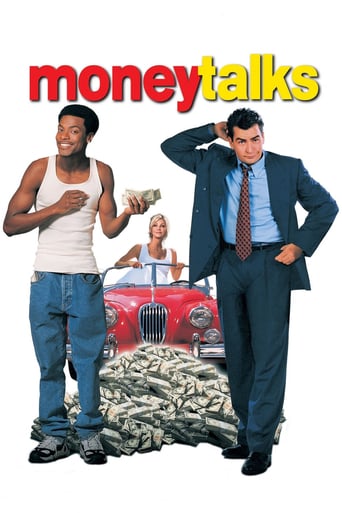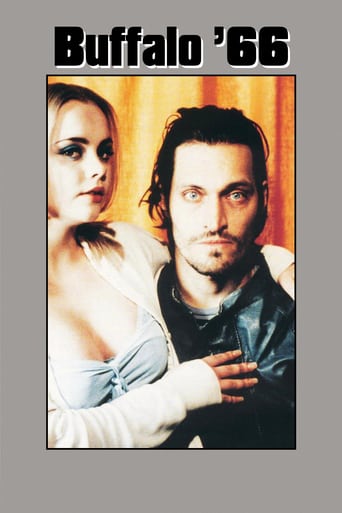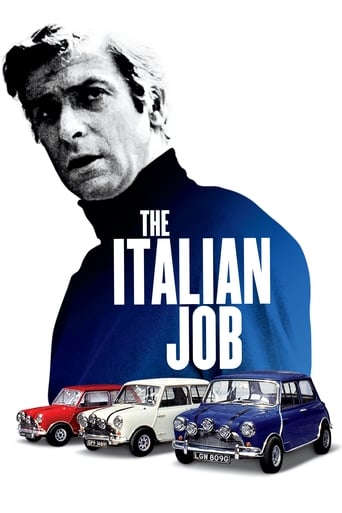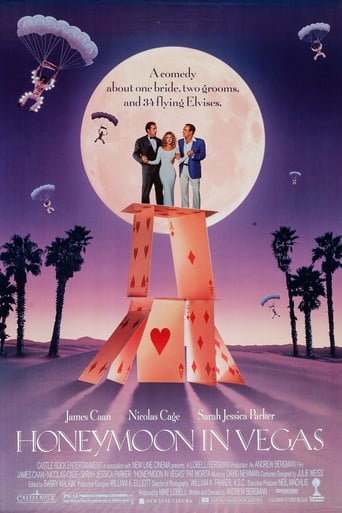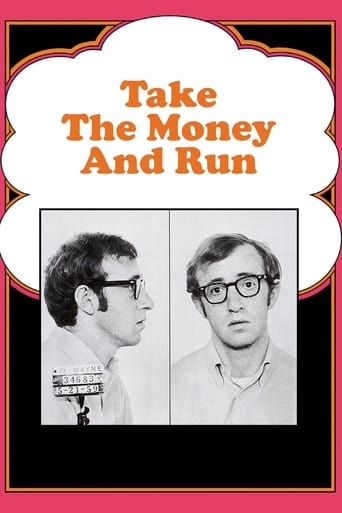
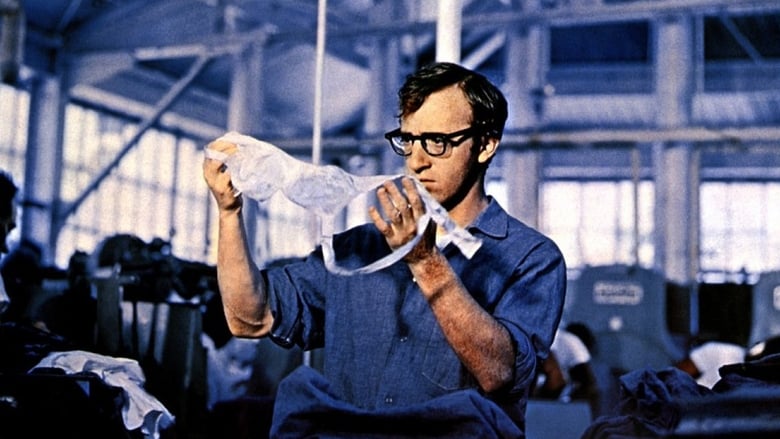
Take the Money and Run (1969)
Virgil Starkwell is intent on becoming a notorious bank robber. Unfortunately for Virgil and his not-so-budding career, he is completely incompetent.
Watch Trailer
Cast


Similar titles
Reviews
Redundant and unnecessary.
I like movies that are aware of what they are selling... without [any] greater aspirations than to make people laugh and that's it.
There's no way I can possibly love it entirely but I just think its ridiculously bad, but enjoyable at the same time.
It’s sentimental, ridiculously long and only occasionally funny
The only real Woody Allen movie of the 60s, it's sometimes a wonder his impressive career ever got started with such inauspicious beginnings. After working in TV as a writer since 1950, his first break into the movies came with 1965's overdone and incredibly dated What's New Pussycat (4). Although he wrote the screenplay and had a role in it, it's not regarded as a Woody Allen film for the very valid reason that he didn't direct it. However, the fact that a great number of people tend to misremember the similarly non-Allen directed Play It Again, Sam (7) from 1972 as a Woody picture is perhaps a reflection on its relative worth.After this there followed a couple of TV movie scripts and 1966's What's Up, Tiger Lily? (5) a Japanese spy film dubbed to turn it into a comedy. Reputedly the idea of behind it was from AIP president Henry G. Saperstein, with Allen hired as gag writer and one of the voices doing the dubbing. Certainly, despite his "Associate Producer" credit, Allen didn't have a great deal of control over the picture, with an impersonator performing some extra lines as Allen and scenes of The Lovin' Spoonful crudely grafted in to extend the runtime. There are some nice one-liners in Tiger Lily ("He lives in that piece of paper?") but ultimately you'd expect something more substantial for what was, after a fashion, Allen's official directorial movie debut. Yet if nothing else, the studio interference on Tiger Lily did make Woody pledge to have greater creative control for his future works. After this we got uncredited rewrites and a role in the appalling Casino Royale (q.v.), a couple of Woody Allen TV specials and the script to the film Don't Drink The Water, a film Allen held in such low regard he remade it 25 years later. It's a messy, patchy start, and Allen wouldn't really begin to see his true potential until the 1970s.So with Take the Money and Run as, for all intents and purposes, the first "Woody Allen movie" then it's interesting to see his art originate here. It's actually quite surprising, for a film in which he unusually plays someone uneducated and working class, how many of his themes are right there at the start. We get psychotherapy, atheism, relationship comedy... there's even the first signs of someone being forced to kill to protect their own lifestyle. That's not to say that Take the Money and Run gave us Crimes and Misdemeanors (and two partial remakes in the late 2000s) but that the seed of the idea was there from the start of his career. There's also the mock documentary format, reused again in his work, most famously of course in 1983's Zelig. Although taken for granted today, this was still a relatively groundbreaking format for the time.Comedy is subjective, but there are parts where Take the Money and Run may be too broad and self-consciously "kooky" today, as with all of his 60s work. If you enjoy jokes like being "in illegal possession of a wart" or a man being turned into a rabbi by taking experimental drugs then it could be for you. But often the jokes are subtler, more inventive and wittier, and sometimes the two forms collide. Witness the scene where Allen, at a job interview, is asked what kind of office he used to work in. "Rectangular" comes the reply, an amusing adjoinder that works in the incongruous surroundings. Except, as the vignette goes on, we find he's playing a game of "What's My Line?" with a fellow colleague, and so the initial gag has been rendered meaningless. This happens repeatedly throughout, some pseudo-realistic moments rendered inert by the fantasy trappings. The one time it actually happens in reverse is when Allen is surreally holding a man at gunpoint while having a polite conversation with him... only for it to emerge that the man is a policeman who is allowing him to think he's getting away with it.However, there are also lots of genuinely inventive sequences in this film, co-written with Mickey Rose (who also co-wrote Tiger Lily and 1971's Bananas). A scene with a gun made out of soap caught in the rain, a cellist in a marching band, a domestic chain gang and a scene with an illegible hold up note are all inspired, even if the latter goes on a little too long. Adding to this is the ending, which contains arguably the most perfect punchline in any Woody Allen picture. Credit to this is given to editor Ralph Rosenblum, who convinced Allen to scrap the downbeat ending where the lead character died in a hail of bullets.In all, watching these first forays into cinema is an interesting education into the work of Woody Allen. It's a world away from the likes of Another Woman, and shows just how varied his career was, before he began to stagnate in the 90s. The Woody Allen of today still produces watchable films, but the works of a man in his 70s with a long career behind him naturally lack the zest and hunger of a writer in his 30s who was just starting out. They're also a telling reminder that the oft-misquoted "early, funny ones" were really just a very small part of his output and far from representative of the body of his work.
The clumsy Virgil Starkwell (Woody Allen) is bullied when he is a child. Then he decides to play cello, but without musical talent, the loser joins a street gang and ends in prison. When he escapes, he meets the laundry worker Louise (Janet Margolin) and lies to her, telling that he plays cello in the symphonic orchestra. He is arrested in a hold up and Louise finds him in prison. He breaks out and flees with Louise to another state. He tries to be honest but he is incapable to fit in any job. When he finally finds a job position suitable for his intellect, he is blackmailed by a colleague and returns to his criminal life. But his heists are disastrous and he always ends in prison."Take the Money and Run" is the second film by Woody Allen in a documentary style the same way he does with "Zelig" in 1983, and tells the saga of a clumsy smalltime thief. The last time I had seen this film was on 22 August 1999 and this time I found it still enjoyable, but less than the last time. Virgil Starkwell is an incompetent loser obsessed with bank heists. The narrative and interviews in the documentary style of the 60's and 70's have hilarious moments and is closed by the funny interview of his neighbor that asks to the interviewer how an imbecile like Virgil could plan the heist of banks. My vote is seven.Title (Brazil): "Um Assaltante Bem Trapalhão" ("A Very Clumsy Thief")
Woody Allen's first Imovie is a slapstick comedy with a brilliant series of gags about a failed cello player who takes up a life of crime. Virgil Starkwell is being hunted by the FBI and the movie is a newsreel account consisting of side-splitting skits: Virgil escaping from prison using a bar of soap; trying to rob a bank as tellers argue over the meaning of his notes; chain gangs on the loose as everyone overlooks the obvious clanging of the chains. The clichés are endless and exaggerated to the point of hysteria. Interviews with his parents (in Groucho Marx disguises) are part of the narrative. We can see the style of humor that at the time was reminiscent of Mel Brooks. Interesting to compare these with his mature movies such as those set in Manhattan in the 1980's and later on, Crimes and Misdeameanors and Manhattan Murder Mystery, where the word play and script were dominant. Yet the early Woody Allen was a budding genius and very funny.
The summary is from the last line of Vincent Canby's NY Times review dated August 19, 1969, and 40+ years later it's still apt. Like Airplane, Take the Money and Run is a gloriously absurd, uproarious, rapid fire parody, and along with Sleeper, Zelig, and The Purple Rose of Cairo it remains one of Allen's funniest and best sustained comedies. There's a wonderfully slapdash feel to the film and the documentary style complete with narration and newsreel footage allows the visual comedy to keep pace with Woody's one-liners. Take the Money and Run is often overlooked in favor of some of his more belabored comedies but it's essential Allen, and lovely Janet Margolin is sweet and funny, and so is the film. Classic comedy.




